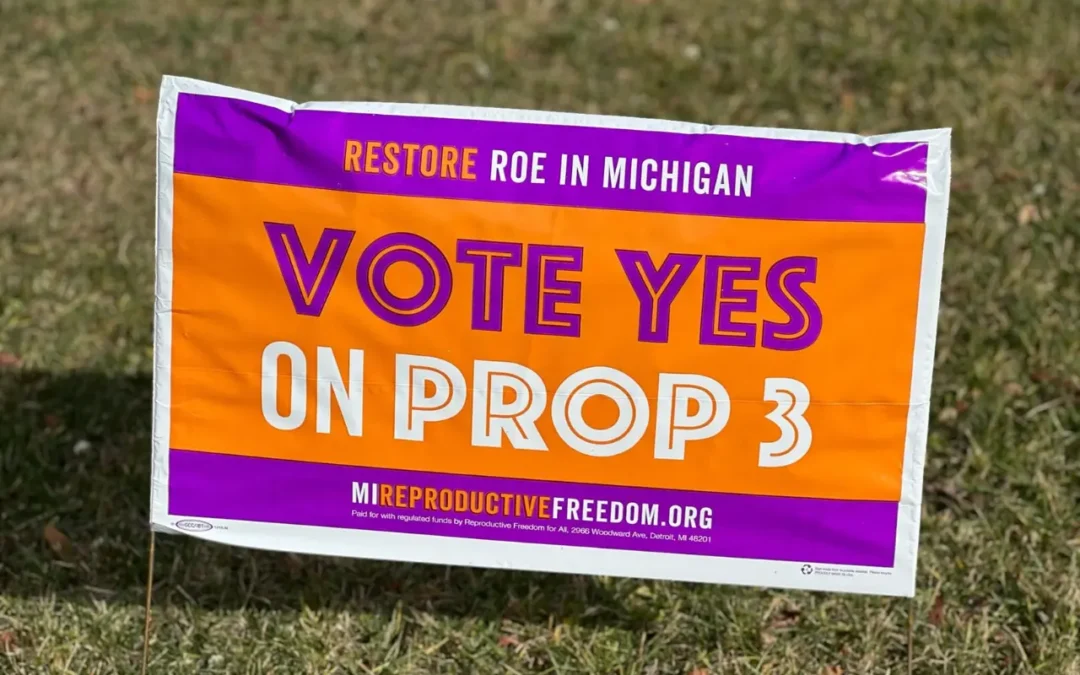
Photo Illustration/Bill Pugliano/Getty Images
A lawsuit filed by anti-abortion groups could disrupt access to the most common form of abortion—even in Michigan, where reproductive rights are constitutionally protected.
MICHIGAN—Attorney General Dana Nessel and attorneys general from 23 other states filed a brief with the US Supreme Court last week, urging it to reject a ruling from a lower court that would restrict access to the nation’s most commonly prescribed form of abortion medication.
It’s shaping up to be the biggest legal battle over reproductive healthcare since the Supreme Court overturned Roe v. Wade—and Nessel isn’t letting Michigan go down without a fight.
Here’s the deal:
In 2022, just a few months after the US Supreme Court overturned Roe and the constitutional right to abortion care, several anti-abortion groups filed a federal lawsuit that sought to limit access to mifepristone, one of two drugs used in medication abortions.
Mifepristone is a prescription drug approved through 10 weeks of pregnancy and—along with a second drug called misoprostol—is used in more than half of abortions nationwide.
Last year, the US Court of Appeals for the 5th Circuit issued a key ruling in the case that effectively reinstated some old federal restrictions on mifepristone—limiting access to the drug by prohibiting it from being used after seven weeks of pregnancy, being sent through the mail, or being prescribed via telemedicine.
That ruling was appealed to the US Supreme Court, which temporarily halted the lower court’s restrictions last spring and ultimately agreed to take up the case in December. The same nine judges that overturned Roe will now have the final say in the matter, with oral arguments set to begin on March 26 and a decision likely to arrive by the summer.
For now, access to both mifepristone and misoprostol remains unchanged and it’s still available in states (like Michigan) where abortion is legal. And a supplemental brief filed in the case this week by Nessel and attorneys general from 23 other states aims to keep it that way—for good.
What’s at stake?
If access to mifepristone is restricted, doctors would be forced to prescribe just misoprostol, the second drug in the two-drug regimen, which is less effective when prescribed alone.
Nessel has argued that any decision to curtail access to abortion medication would ignore decades of evidence and clinical trials that show mifepristone is safe and effective.
The lower court’s ruling to reinstate restrictions was based on misleading claims about the safety of the drug—and would have a disproportionate impact on low-income and underserved communities that face challenges in accessing health care, the attorneys general said.
“When the US Supreme Court issued its ruling in Dobbs, they remanded decisions about abortion access back to the states,” Nessel said. “This is just one of the many attempts by anti-choice activists to restrict safe abortion care, even in states that upheld reproductive rights.”
The brief filed last week argues that the restricted access to medication abortion would also cause undue harm in rural areas, where women die more often in childbirth and where there aren’t many clinics that offer surgical abortion procedures—like much of Northern Michigan.
For Michiganders in those areas, abortion medication can be their only viable method.
Nessel has also said the restrictions—if left to stand—would lead more Michiganders to undergo procedural abortion, push abortion procedures to later in pregnancy, drive up risks, costs, and delays, as well as deprive many Michiganders of access to reproductive healthcare altogether.
Limiting access to the drug would also create widespread confusion among providers, distributors, and pharmacies—ultimately destabilizing the regulatory process for drug approvals, stifling innovation, and slowing the development of other drugs, the attorneys general argued.
READ MORE: Everything you need to know about medication abortion in Michigan
For the latest Michigan news, follow The ‘Gander on Twitter.
Follow Political Correspondent Kyle Kaminski here.
Support Our Cause
Thank you for taking the time to read our work. Before you go, we hope you'll consider supporting our values-driven journalism, which has always strived to make clear what's really at stake for Michiganders and our future.
Since day one, our goal here at The 'Gander has always been to empower people across the state with fact-based news and information. We believe that when people are armed with knowledge about what's happening in their local, state, and federal governments—including who is working on their behalf and who is actively trying to block efforts aimed at improving the daily lives of Michigan families—they will be inspired to become civically engaged.


Wakefield doula helping local moms as federal funding cuts impact the Upper Peninsula
As federal funding cuts cause more rural hospitals in the Upper Peninsula to close their doors, doulas like Lynnea Laessig of Wakefield are stepping...

Right to Life of Michigan files court appeal to challenge Proposal 3 claiming ‘dangerous overreach’
BY KATHERINE DAILEY, MICHIGAN ADVANCE MICHIGAN—Right to Life of Michigan, alongside several parents, have filed an appeal in the US Court of Appeals...

These two southeast Michigan moms want to fight for their communities—so they’re running for office
As Republican lawmakers try to cut maternal health care resources in Michigan and beyond, these ‘Ganders are pushing back—by trying to replace...

This Detroit community is helping its neighbors recover with abortion after care event
“At the end of the day, it’s going to be a community that pours into one another, especially when things get hard.” As attacks on abortion and...

Planned Parenthood extends telehealth to 7 days a week in Michigan due to growing demand
“For many of our patients, telehealth is literally lifesaving.” In response to the escalating attacks on sexual and reproductive health care...





